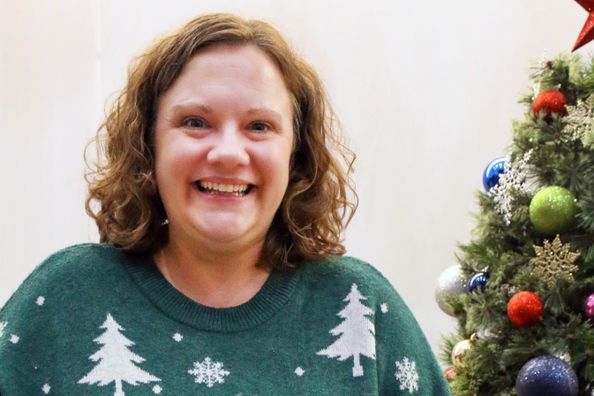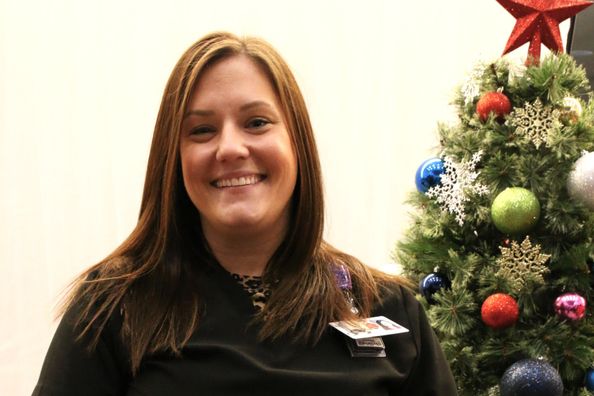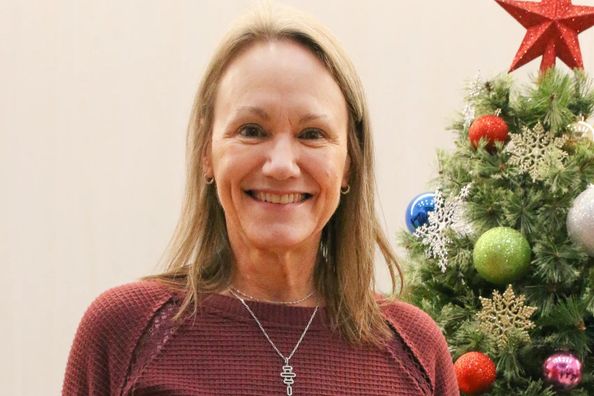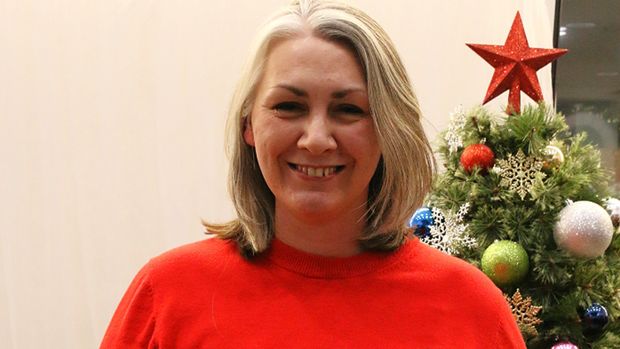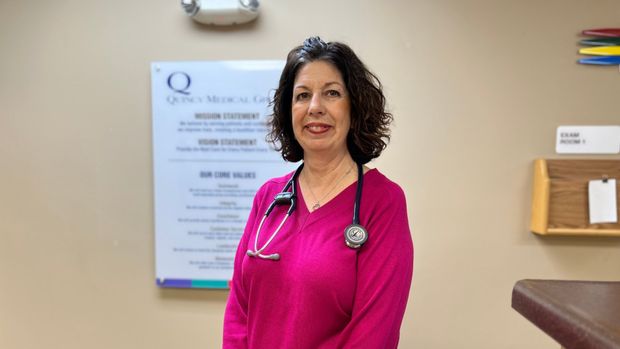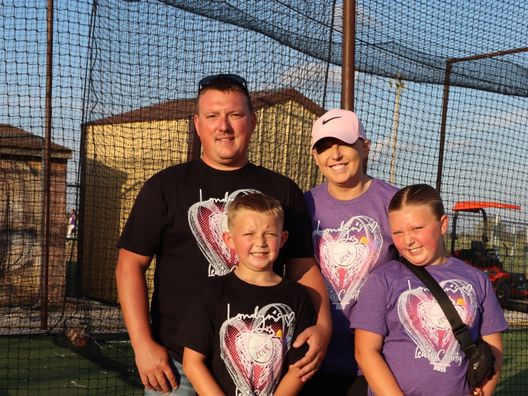A year ago, Caroll Mckinney received a life-saving hematopoietic cell transplant at the Siteman Cancer Center in St. Louis. While there, he met fellow Quincy resident Andy Tappe, who had just undergone an allogeneic blood stem cell transplant, at the same facility. While these two men bravely endured their treatments, their equally brave wives, Mimi Mckinney and Michaela Fray-Tappe, stood by them as caregivers and sources of support.
“When life takes an unexpected turn, caregivers encounter numerous obstacles, many of which are beyond their control,” shared Michaela. “As a planner and educator, the inability to strategize around his (Andy’s) diagnosis was particularly disorienting. One moment, we were living our lives normally; the next, I found myself navigating a complex medical environment with little say over appointments or treatment plans.”
Caregivers face the significant task of juggling work, navigating a new schedule, maintaining a home, and caring for children and aging parents. “It’s challenging,” shared Michalea, “to manage multiple responsibilities simultaneously while trying to keep our lives moving forward.”
A part of keeping things moving forward is making hard decisions regarding medical treatment, family, work, and even the holidays — to name a few. “We talked to our four children (at the time, grades 2 – 12) about homeschooling and moving to St. Louis,” shared Mimi. Ultimately, the family decided to keep the children in Quincy. There are also hard decisions as families navigate a stretched budget. “It was challenging to run numbers and project the outcome of the expenses, like Caroll’s medical expenses, time off work for both of us, travel, and adding the cost of a required second residence in St. Louis during his treatment,” shared Mimi.
Then, there is the medical side of caregiving. Michaela shared, “One of the most daunting aspects of caregiving was the responsibility for someone medically fragile — especially when I lacked a medical background.” Caregivers find themselves as a central figure in their loved ones’ healthcare. Michaela likened it to being “a coordinator among his (Andy’s) team of doctors and nurses.” She was surprised by the lack of synergy between facilities because they use different platforms and systems. “To navigate this challenging landscape effectively, I quickly recognized the importance of keeping detailed notes, ” shared Michaela. “This meticulous notetaking not only helped me stay informed but also equipped me to ask informed questions and engage in discussions with healthcare providers confidently.”
Caregivers often set aside their feelings. “It was challenging trying to maintain an optimistic, poised, and controlled disposition,” shared Mimi. “Knowing that things could fall apart in multiple ways, at any moment, and our lives would forever change in an irrecoverable way.” Which is why supporting caregivers is so crucial. “We all likely know someone who is caring for a loved one. If you have a friend or family member in this role, take time to reach out,” said Michaela. “Just like the individuals they care for; caregivers benefit immensely from check-ins and companionship.”
Both women encourage the community to build a supportive network for caregivers. “Together, we can create an environment where caregivers feel seen, appreciated, and connected,” said Michaela. They encourage caregivers to lean on family and friends, connect with fellow caregivers, utilize available resources, seek expert help navigating medical situations, and document everything.
There were blessings as well. For Mimi, “the most unexpected was having friends, family, and a community organization, like the Quincy Medical Group Foundation, willing to give up their time and resources to add to ours.” The Mckinney family received unexpected support from individuals who altered their lives to help care for Caroll in St. Louis and the boys in Quincy. This assistance allowed Mimi to balance time between her husband and children. “We also were not expecting to be blessed by the Quincy Medical Group Foundation, which helped our family cover some household bills when we didn’t have a means of paying for additional expenses. That was one of the most unexpected, meaningful, and comforting gifts we’d received during such a stressful time for our family.”
Michaela deepened her commitment to her faith and learned to ask for help, even though it was difficult. It also ignited a new passion for Michaela to take what she learned through her experiences to help caregivers get needed support, including developing a caregiver’s guidebook. “The journey of caregiving can be filled with unexpected challenges. Embracing the role of an advocate has been a crucial part of my experience, ” shared Michaela. “By acknowledging these obstacles, we can work towards a more supportive healthcare environment for caregivers and patients alike.
Health Topics:


